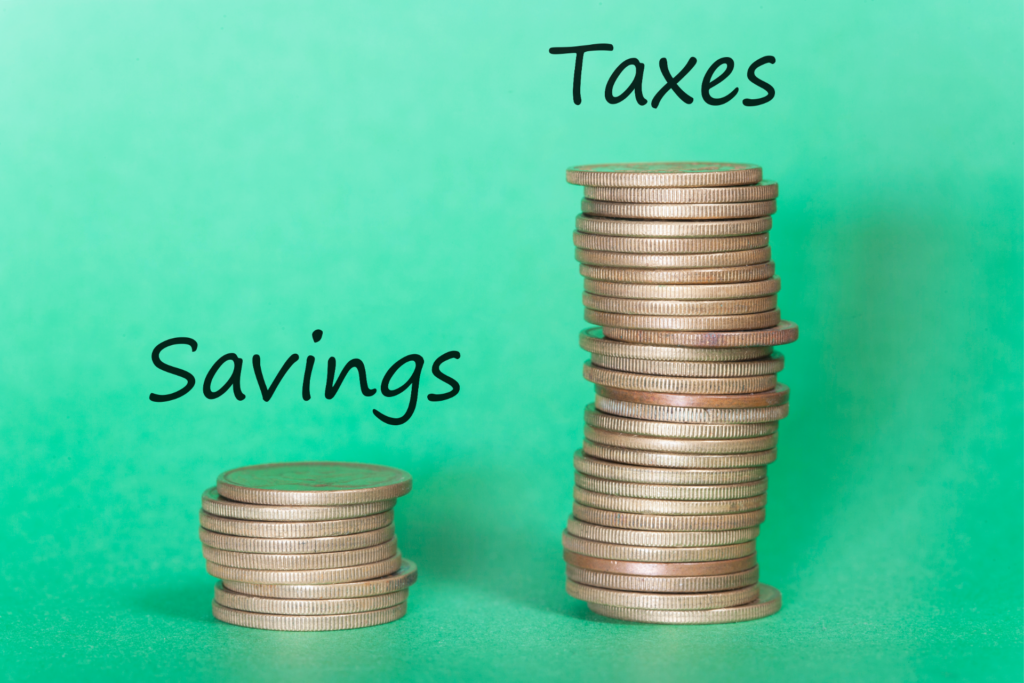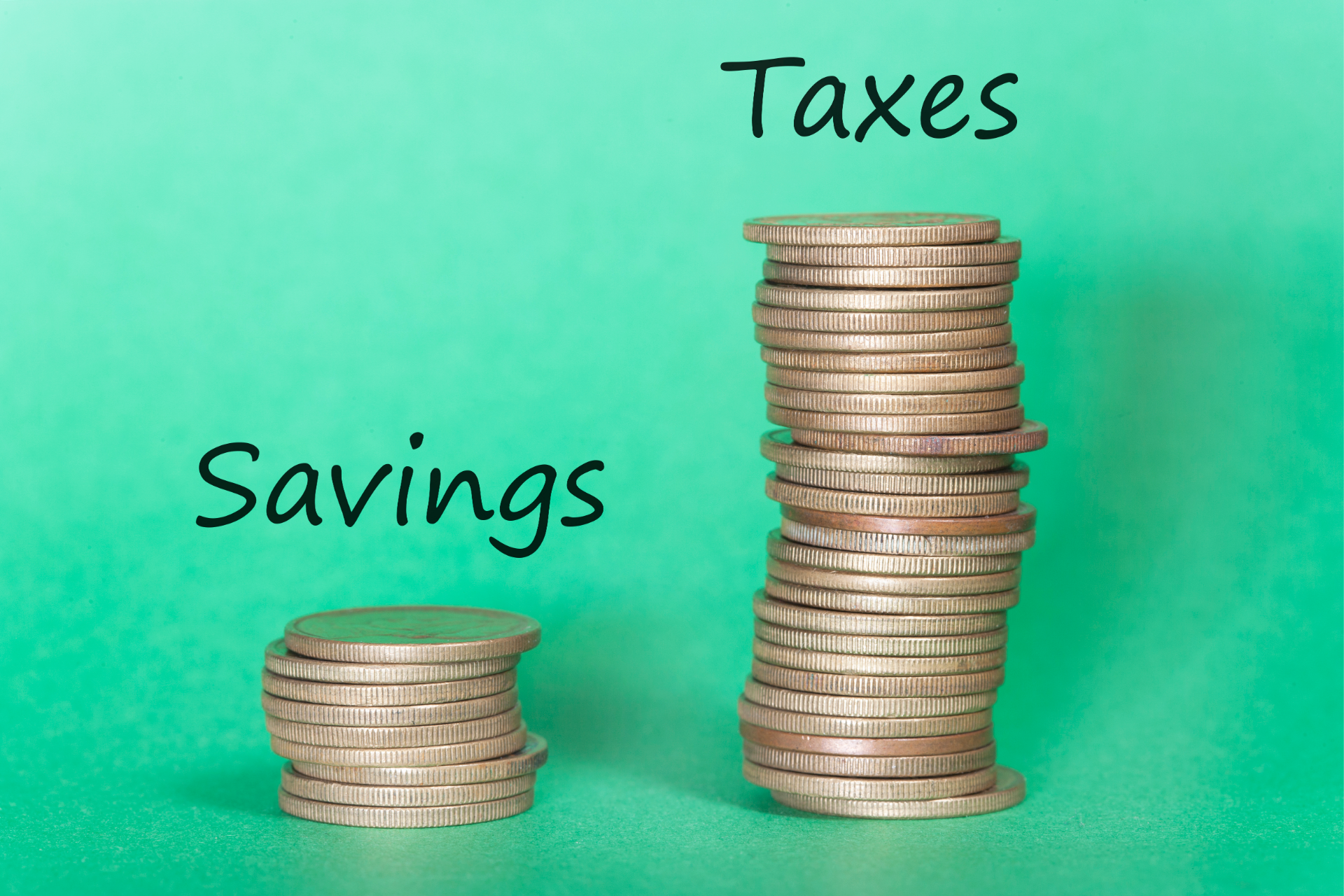As we approach the end of the year, you will get ready to gather tax and financial documents (incomes, expenses, deductions) for tax preparation of your self-employed psychotherapist tax returns.
Many of us are familiar with tax preparation, but few are aware of what tax planning entails.
This article will go over the distinction between tax planning, tax preparation, and how you will significantly benefit from being proactive in your personal and private practice tax management.
Not putting strategic tax planning in place is like a general contractor not considering all the components that go into constructing a house.
Tax planning is one of the most significant, yet often overlooked, tools of wealth building.
In fact, from working with my small-business clients in psychotherapy, they have saved thousands of dollars in taxes. This results from them knowing the difference between the two and putting proper strategies in place to plan, build, and preserve their wealth.
But before we get into why a tax plan is a powerful tool for wealth building, let’s go over tax preparation.
Tax Preparation Should Be Proactive Rather Than Reactive
Tax preparation occurs when you either do it yourself, go to a CPA, or a tax preparer to prepare and file your previous year(s) tax returns.
You file your returns when the year has closed, and most of the deductions or credits you are eligible to take cannot be changed or improved.
Besides taking a traditional IRA deduction on your return after December 31st and putting a few strategies in place, the opportunity to significantly reduce your tax obligation is very slim.
Once you or your tax preparer has completed your tax returns, you will receive a refund or owe money.
Here, your tax preparer is a historian. What you did during the previous year is what they are recording. Gathering historical data and reporting that data to a tax return is not the same as tax planning. Preparing and filing your return is crucial for being on the IRS’s good side, but it is not a substitute for proactive tax planning.
Being reactive is acting in response to a situation rather than creating or controlling it.
Just doing tax return preparation and not putting strategic tax planning in place is reacting to tax deadlines.
This response does not create an intentional process that will allow you to build wealth. Tax preparation is a seasonal event as opposed to a year-round operation.
Now, we will go over the crux of tax planning.
Powerful Strategies To Design Your Tax Game Plan
A CPA does tax planning before preparing your tax returns.
They review the tax implications and benefits from various angles, including:
- Personal benefit
- Business benefit
- Asset protection
- Retirement plan
- Charitable giving
- Federal income tax
- Federal employment/payroll tax
- State taxes
- Business structures, and much more
Suppose you could reduce your tax obligations and put the saved money into retirement, reinvestment into your private practice, or support your family. Will you take advantage of the opportunity?
If yes, tax planning is done throughout the year in which strategies are implemented before December 31st to reduce taxes owed. Not every tax preparer offers these services, and you will have to request it separately from tax preparation.
By the same token, not every tax preparer puts on their strategic hat to reduce your taxes while preparing your returns. They may also not consider meeting with you after the tax deadline to lay a blueprint for the year.
Proactive CPAs view tax planning as vital because of the intention you are making throughout the year to review your current finances, short-term, and future goals while designing a tax savings game plan to reduce taxes and save money.
The tax savings plan put in place now will benefit your future financial outcomes. The opposite is also true. Not implementing any tax savings tools now can negatively affect your future practice finances.
While putting tax planning in place for your self-employed psychotherapy business may cost more upfront, you should view it as an investment rather than a burden. It’s an investment because it will save you a lot more than just the traditional tax preparation.
Every self-employed psychotherapist’s tax is unique.
By collaborating with a proactive tax planner with in-depth experience and tax law knowledge, they will continuously look at opportunities to use the tax code to your greatest advantage. A considerable amount of time is spent researching and analyzing your unique situation. This process will ensure that you understand and choose the right tax strategies for your practice.
For example, a CPA can guide a private practice owner on different retirement plans for small businesses. Taxpayers are familiar with regular IRA contributions but keep in mind other tax reduction retirement plans are available.
From reviewing the retirement plans allowed by the IRS, you will need to determine which ones you qualify for. From there, figure out the maximum retirement contribution you want to set aside to save taxes.
Likewise, having your practice financial records up-to-date (revenues and expenses) throughout the year will enable your CPA to estimate taxes you will owe for the year.
From the retirement analysis performed, plans are put into place to reduce your projected taxes before the end of the year.
However, after the year is over, you cannot put this effective strategy in place.
These effective techniques ensure you reap tax reduction benefits in the current year while saving for your future retirement and putting money back in your wallet.
However, if strategic tax planning is an afterthought, you cannot receive any of these benefits. A tax plan is an underrated tool you can use to plan, build, and preserve your wealth.
Powerful Strategies Designed To Build Wealth
As you can see, businesses and self-employed taxes are complicated. Therefore, you must put a tax plan together to take advantage of the savings available.
Since there are far fewer ways to reduce taxes after the year has ended, the negative outcome is paying excessively in taxes. Overpaying taxes diminishes cash you could have used to grow your practice or pay your staff.
Like a general contractor considering all the components that go into building a house, your CPA must look into all the factors highlighted in this post to ensure effective wealth-building aligns with your dreams and goals.










